It’s no secret that female athletes face a laundry list of challenges that don’t exist for their male peers. From the wage gap, to jokes about their skills, to the lack of publicity and exposure, women don’t have the luxury of just focusing on the game.
One sport that to the outside world might seem immune from this is skateboarding. With its counter-culture roots and misfits persona, it would stand to reason that the issues afflicting other sports don’t exist in this realm. But historically, that hasn’t been the case.
Women skaters rarely get the attention their male counterparts enjoy, whether in the media or among their own peers. Meow Skateboards is trying to change that.
Founded in 2012 by skateboarding filmmaker Lisa Whitaker, Meow is a skating brand offering sponsorship opportunities to women. Not only that, but Meow also serves as a support group, or even more so— as a family to the women who make up the team. The birthing of Meow symbolizes a change of speed for the sport. While the big brands might not have been as willing to dish out sponsorship deals to women, Meow wasn’t afraid to make their own.
Having skated for Rookie Skateboards back in the ’90s, Whitaker wanted to recreate that opportunity she had for others in the skating scene. It makes sense that prior to this Whitaker also founded the Girls Skate Network, which has continued to be a strong point of communication and inspiration for females in skating.
Not only is the goal of Meow to create change, but it’s built by some of the few who were at the forefront of this same fight. The Summer X Games (originally dubbed the “Extreme Games”) debuted in 1995. Back then, there were no female skateboarding competitions being held at the games, even though there were most definitely women and young girls skating at the time.
It wasn’t until 2003 that Vanessa Torres would win gold in the first ever women’s street event (that year it was called park). Torres, a member of Meow, has competed every year that women’s events have been available. Torres was also the third woman featured in a skating video game, following in the footsteps of skating greats Elissa Steamer and Lyn-Z Adams Hawkins. Torres made her video game debut in Tony Hawk’s Proving Ground. She is an icon for the sport.
While the chance to skate was there, the pay wasn’t. It wasn’t until 2008 that the X Games decided to pay male and female winners equally. The same couldn’t be said for other competitions around the world then or now.
Another giant competition, the Street League Super Crown, was founded in 2010 and didn’t have women competing until five years later. So not only were the competition opportunities limited for women, but the marketing opportunities were even more scarce. And if they were present at all, they didn’t necessarily represent women in the best light.
Torres had originally been on a deal with Element in her earlier days of professional skating. “I never had a personal relationship with Element,” she recalled in a 2015 interview with Jenkem Magazine. “They put out a bunch of models with my name on them, but I never had any say in what those graphics were. Not one graphic. They were just pushing out boards with my name on them. I’m sure I was not making crazy board sales on Element, but they’re still making money off me.” This is where Meow came to play. Having known Whitaker for many years, Torres was eager to join a company that was about doing it right, and representing women in a way that would make them proud.
Another member of Meow is also making some waves within the marketing world of sports. Lacey Baker, who is also signed to Nike SB and a few other companies, is one of the most talented and young stars of skating today. She most recently starred in Nike’s iconic ad from this year featuring Colin Kaepernick. The ad itself is an ode to marginalized athletes and pushes the idea that every voice does matter.
Being a queer professional skateboarder, Baker is not only inspiring young girls to take up skating but to also never be afraid to be themselves. In a male-dominated industry and world, fitting in isn’t always easy. But the women who do take up skating aren’t afraid to try and carve their own lanes. They’ll gladly do it with or without the help from their male counterparts.
Baker isn’t a stranger to issues within the marketing cycle either. “They wanted me to keep my long blonde hair and be feminine, because it’s marketable,” she told Huck Magazine this past September. Baker would also mention how she’s left money on the table because the contracts weren’t a proper representation of her. That’s a big deal, as any athlete in the extreme sports world will tell you, sponsors kind of make the world go ’round. But it’s this boldness from Baker and all of Meow that is allowing them to take some of this power back.
It’s clear that male athletes—regardless of sport—are earning much more money through competition and sponsorship deals. Not only do companies pay more, but they offer more opportunities to men. This has nothing to do with lack of skill either. It’s been proven many times women can skate just as, if not better, than men.
People typically say “if you can’t beat ’em, join ’em.” But Meow would prefer the opposite—to beat the system that hasn’t let women shine the way they should. Meow is paving a better path for the next group of young girls who fall in love with having that board beneath their feet. Within the skating community, they’ve made their own tight-knit squad and outlet. It might not have to be like that forever, as it would ultimately be the goal to one day not have a need for a company like this.
Meow really is building the future of the sport. Their team is diversified with women and girls from all walks of life, ages, and styles. Fourteen-year-old Liv Lovelace is an up-and-comer out of Australia with high hopes for her career. Having just come off a performance at X Games Sydney, Lovelace is gearing up for an appearance at the 2020 Olympics, where skateboarding will be making a grand debut.
There’s also Amy Caron, who has over 20 years of skating under her belt. Or Christiana Means, who just turned 21. And that’s just a few members on one of the most talented rosters in all of skating.
The rise of social media and the way with which we connect to people has done a lot for women in skating. When you look at any of the Meow members’ Instagram accounts, you’ll see what I mean. While women skateboarding might not be broadcasted as often on TV, it’s through the internet that a lot of them have been able to get their talent and personal brand out there. This is why Whitaker has been filming all these years. The proof is right on the tape.
Not only is it good for an image boost, but this has allowed many women in the industry to connect. Amongst all these posts are kindred spirits who love the same things you do. It’s how Meow has been able to find such raw talent.
The growth of the internet has allowed Meow to thrive as a company as well. To gain more of that support from the industry, there has to be more of a focus on the women doing great things in skating. They have to have a following. With social media, girls can start building a following from a young age, so when that time comes for a potential signing, companies will know what’s up. While it might not be a fair system, it is a tool that can be used to people’s advantage and one that might break doors down for the future.
With the addition of skateboarding to the Olympics in 2020, we might be on the horizon for a big breakthrough for the gender gap within the sport. On the national stage, women will get to showcase their skills to a larger, more unaware audience. It’ll be an opportunity to open some eyes to the wider scope of the skating world. And if you’re watching, you might even see a Meow board fly across your TV.




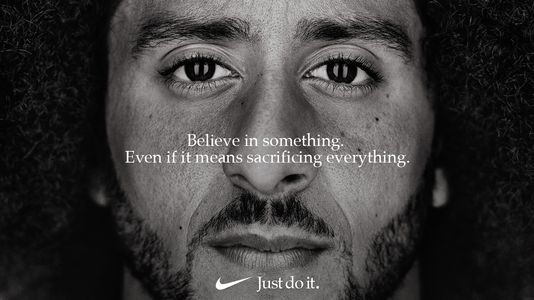



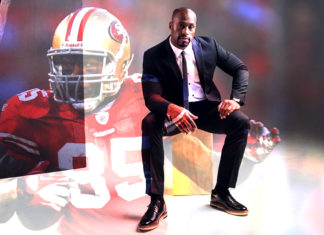

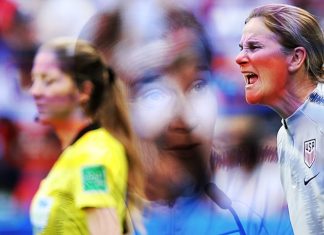
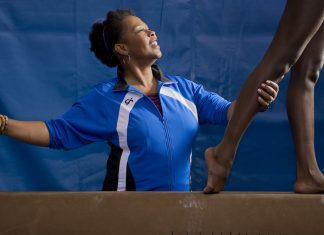

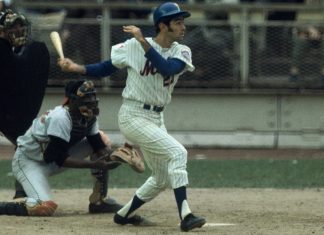
[…] pitchers to weaponize heavy projectiles thrown at insane speeds every time a hitter has slightly too much fun (an emotion for women) after being good at their job. I invite you to let me show up at your house with a bucket full of baseballs, and I’ll just whip […]